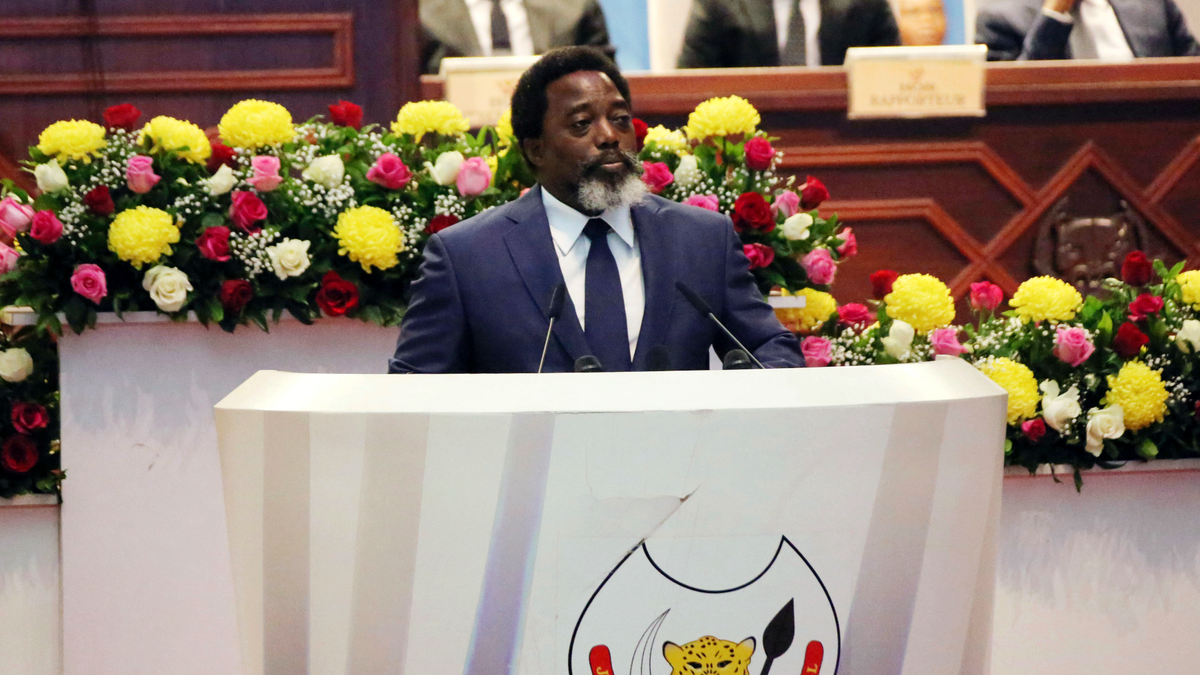
KINSHASA, Congo – Congo's President Joseph Kabila is not running again in December's long-delayed elections, easing concerns by the opposition and international community that he would try to stay in office and positioning one of Africa's most turbulent nations for its first peaceful, democratic transfer of power.
Kabila will remain influential, however. He chose former interior minister Emmanuel Ramazani Shadary, the ruling party's permanent secretary, as the candidate for the newly formed Common Front for Congo coalition. Kabila is considered its moral authority.
Government spokesman Lambert Mende announced the decision on Wednesday, just hours before the deadline for candidates to register.
The 57-year-old Shadary is among nine Congolese that the European Union imposed sanctions on last year for obstructing the electoral process and related human rights violations.
International pressure had been growing on Kabila and his government over the election delay, with the United States in June taking the unusual step of announcing visa bans on several Congolese senior officials but not naming names, citing their involvement in "significant corruption" related to the electoral process.
Kabila, who came to power in 2001 after the assassination of his father, former President Laurent Kabila, by law cannot run again after his mandate ended in late 2016. Elections have been delayed since then, with Congo's government blaming the difficulties of organizing a vote in the vast country.
Demonstrations over the delay have turned deadly, with Pope Francis and others appealing for calm after police in January used tear gas to disperse ambassadors and others at a mass at Kinshasa's Catholic cathedral to honor protesters killed.
Shadary faces a number of contenders for the presidency as the opposition attempts to settle on a single challenger. The leader of Congo's largest opposition party, Felix Tshisekedi, has registered to run.
A surprise candidate is former Vice President Jean-Pierre Bemba, fresh from acquittal of war crimes on appeal at the International Criminal Court; he had been convicted for murder, rape and pillaging committed by his Movement for the Liberation of Congo forces in neighboring Central African Republic in 2002 and 2003.
And a former leading presidential contender Moise Katumbi, has been blocked from entering Congo in recent days to file his candidacy. He fled the country in 2016, months after resigning from the ruling party, after prosecutors announced their intent to try him on charges of hiring mercenaries, which he denied.
Congo's constitutional court still has to rule on potential candidates' eligibility.
Whoever wins the Dec. 23 vote takes over a vast country with trillions of dollars' worth of mineral wealth but with dozens of armed groups battling for a part of it. Millions of Congolese have been displaced by various internal conflicts.
Unrest in the northeast poses a challenge to Congo's latest outbreak of the deadly Ebola virus, with health officials comparing the situation to a war zone and the U.N. peacekeeping mission offering support.
___
Follow Africa news at https://twitter.com/AP_Africa
